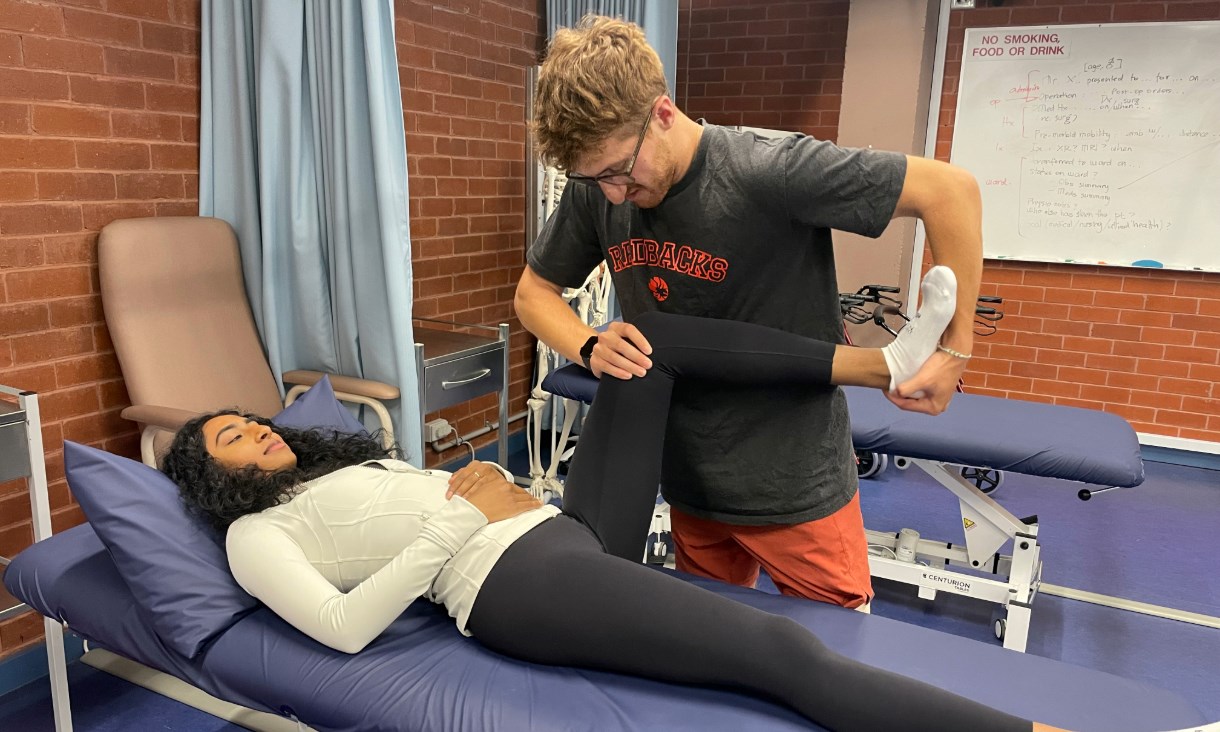RMIT has launched a new Master of Physiotherapy to respond to increasing health demand and skills shortages, particularly in private and community practices.
The two-year accelerated degree will offer financial support for students, who will undertake placements from their first semester in private and community practices.
This will help to immediately provide a workforce solution due to increased demands, particularly in private and community settings where up to 80 per cent of physiotherapy graduates are gaining employment. This is driven by an emerging trend that sees acute care patients making an early transition from hospitals into the community as well as more patients accessing physiotherapy programs whilst awaiting surgery.
The new RMIT course launched in semester two 2024 and was co-designed by industry, to ensure graduates have relevant skills, including client management, business, workplace culture, responsible practice and a renewed focus on wellness and lifestyle medicine, and managing chronic conditions across the lifespan.
Professor Doa El-Ansary, Deputy Dean of Engagement and Head of Physiotherapy in the STEM College, said almost every Australian would likely need physiotherapy at some point in their lifetime, especially given the nation's prevalence of chronic conditions.
"RMIT is committed to producing graduates whose skills and experience aligns with industry demand. The Master of Physiotherapy will take clinical learning to the next level by offering students a professional placement with an industry leader over a two-year period. This will allow students to be integrated into a community practice and become one of the team," said El-Ansary.
"We recognise that it can be difficult for students to balance placements with cost-of-living pressures, which is why we're building in a model of financial support into the program."
The course will combine clinical skills with workplace skills and experience to forge work readiness and employability. It will also be co-designed with industry to include business KPIs as assessment of performance.
"We're looking into many new ways of doing things that align with emergent healthcare demands, innovation in industry and evidence-based practice to graduate agile and resilient health leaders of the future," El-Ansary said.
"For example, we've teamed up with psychology and counselling at RMIT to teach Master of Physiotherapy students effective communication skills which will then be assessed by our partner clinicians, with real patients."
Kieser Australia will be among the first organisations to offer placements in the new degree. Brett Long, CEO of Kieser Australia, sits on the advisory board for the Master of Physiotherapy and helped to co-design the course.
"For placements at Kieser Australia, the objective is to maximise the students job readiness. And I think the emphasise is all aspects of life as a professional. We think it's important they experience all elements of how a clinic operates from reception, payments and bookings through to participating in professional development that supports the non-clinical challenges of been a professional, and of course involvement in advanced clinical reasoning and complex case management," Long said.
"We love the energy and eagerness to learn of our placement students. They help our clinicians stay on top of the most recent research and contemporary treatment modalities. It also makes it easier for us to hire, because placement students are familiar with our clinic and treatment pathways."

Master of Physiotherapy student Jordan Halaseh practises on fellow student Khushi Joshi.
Student Khushi Joshi is undertaking placement with Exercise Thought. She entered the course interested in sport and exercise physiotherapy, but is now interested in many potential career paths.
"We'll start off observing and being asked anatomy-related questions. Then, slowly, we'll work towards talking to patients, building a rapport, and doing subjective assessments. They're building us to be professional, practicing physios by the end of the degree," said Joshi.
"We'll have great connections and references when we graduate."
Student Jordan Halaseh has also been placed at Exercise Thought. He runs a youth athlete business, works as an exercise scientist and is undertaking the Master of Physiotherapy to retrain as a physiotherapist.
"I'm really excited for the hands-on side of things. After my undergraduate degree, I did a lot of learning on the job. In this degree, I'm already to start feeling more confident in assessments of joints and different movements and so on - and I'm eight weeks into my course. I won't be learning this stuff on the job. We'll learn it in class while doing it on placement," said Halaseh.
"We also have the financial support, which will help with petrol, parking and lunch money."






